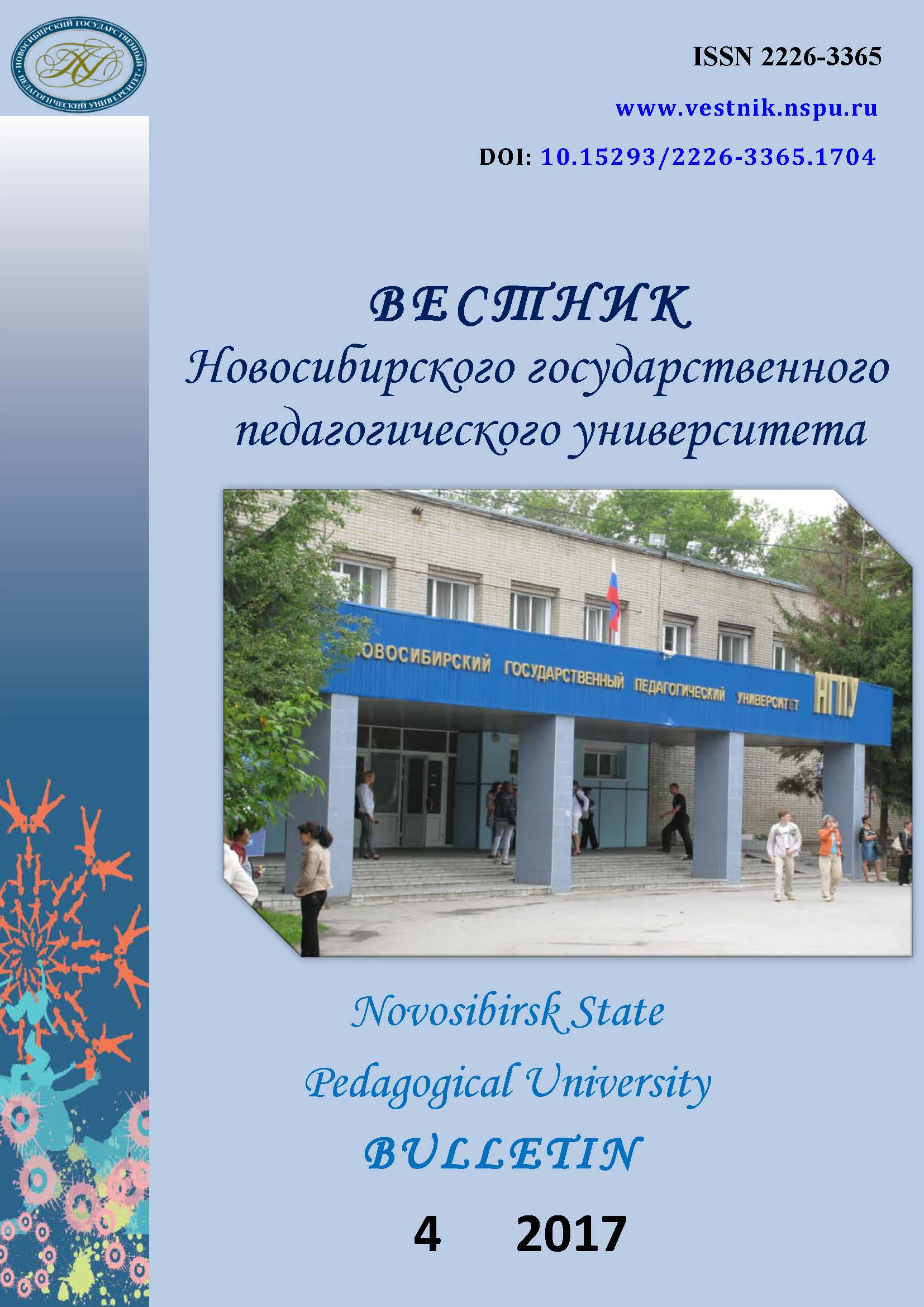Категория таксиса в лингвистике (на материале
немецких высказываний с предложными девербативами)
Category of taxis in linguistics (on the basis of German statements with prepositional deverbatives)
Author(s): Irina Victorovna ArkhipovaSubject(s): Foreign languages learning, Applied Linguistics, South Slavic Languages
Published by: Новосибирский государственный педагогический университет
Summary/Abstract: Introduction. The research goal of the article is the description of special grammatical category of taxis in domestic linguistics and the definition of the structure of this category in modern German. Materials and Methods. The main research methods in this article are the method of anal-ysis and the descriptive method. In addition, to identify the structure of the taxis category, we used a combined onomato-semasiological principle of language phenomena studying. Results. The article deals with the grammatical category of taxis in Russian linguistics. Particular attention is paid to the consideration of this grammatical category in German within the framework of the functional semantic concept proposed by the Russian linguist A. V. Bondarko. In addition, the structure of the taxis category was defined in modern German lan-guage and a special mean for forming of relations of dependent taxis, such as the German prepositional-deverbative constructions, was identified. Conclusion. According to functional-semantic concept, taxis is considered in modern German as a functional and semantic field with a complex polycentric structure, suggesting the allocation of two micro-fields: micro-field of independent taxis and the micro-field of dependent taxis (with central and peripheral components). German statements with prepositional-deverbative constructions are defined by us as a special mean for taxis function implementing. These statements are constituents of the function-al-semantic field of the dependent taxis of modern German. The center of this field is formed by statements with prepositional deverbatives with prepositions of the differentiated time values während, vor, nach and seit, and the periphery include statements with prepositions of polycen-tric semantics in, bei, mit and unter.
Journal: Вестник Новосибирского государственного педагогического университета
- Issue Year: 7/2017
- Issue No: 4
- Page Range: 196-208
- Page Count: 13
- Language: Russian

